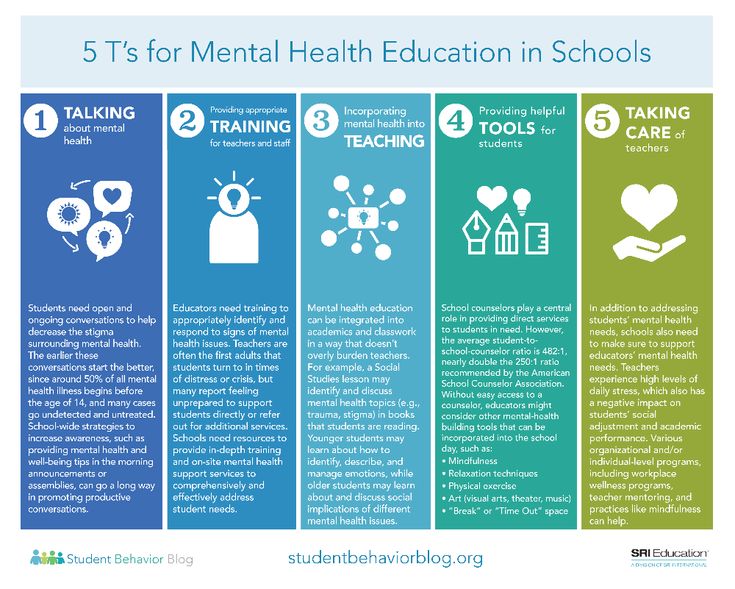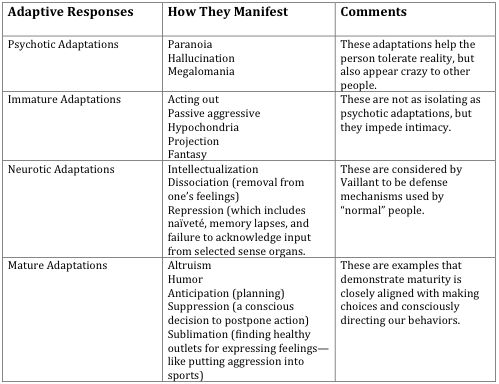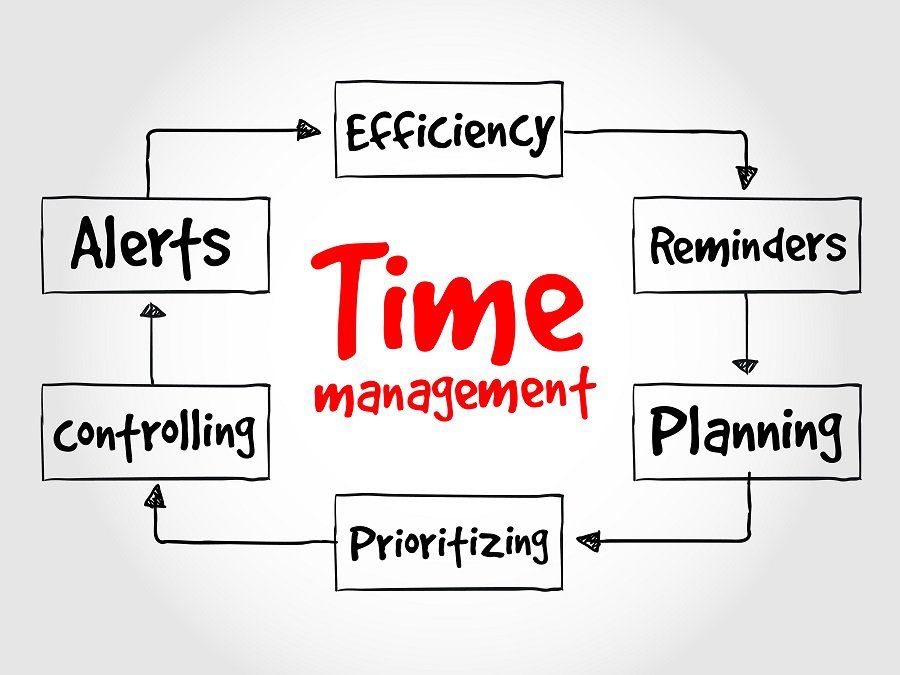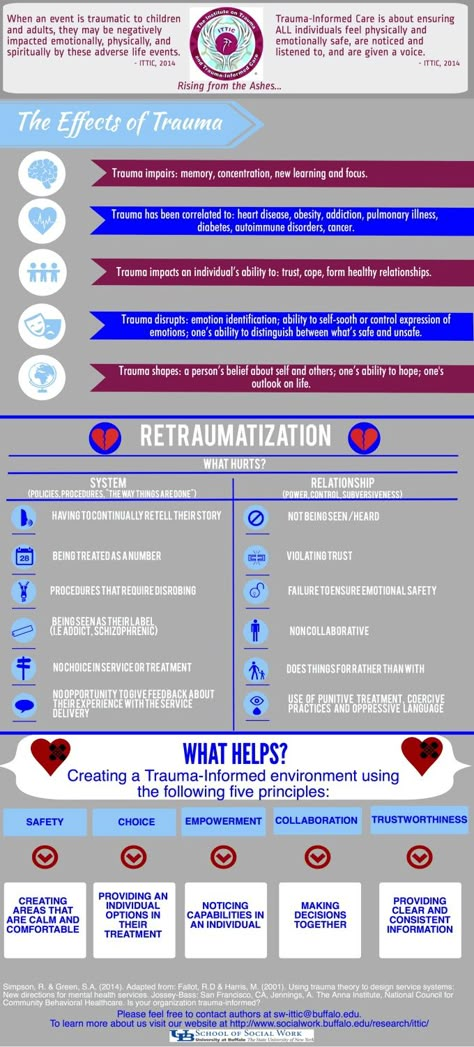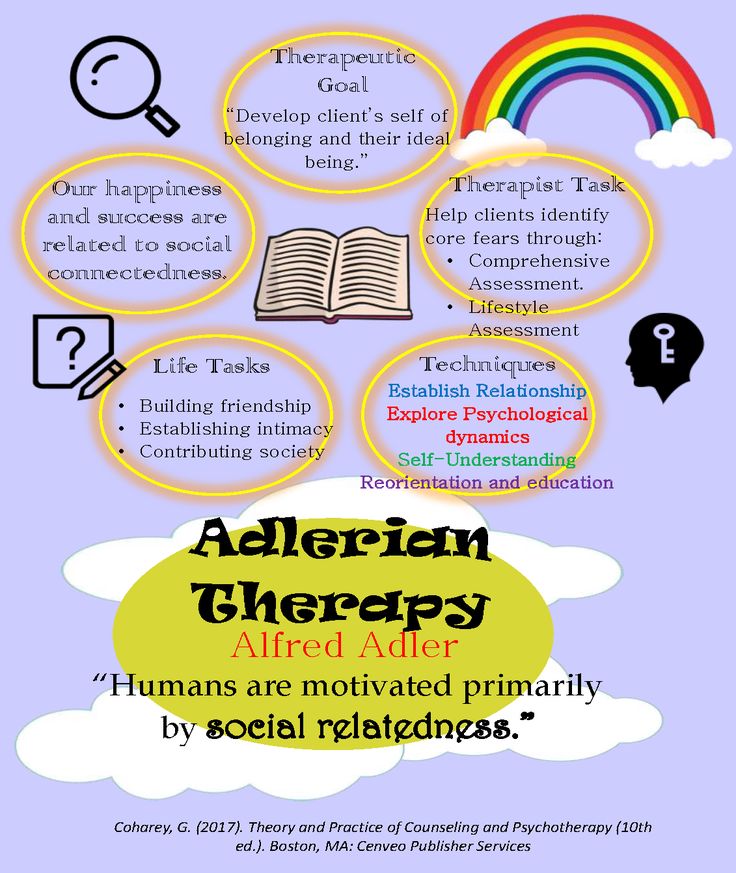Grieving an affair
The Grief of an Affair
Your partner cheated. Now what?
Your partner cheated. Now what?
Your partner cheated. Now what?
Read part one of this two-part article: How Do Affairs Happen?
The revelation of a partner’s affair (sexual or emotional) comes as a shock to the hurt partner, even when doubts exist. The loss of trust in a relationship is no different from a physical loss. The closeness of the relationship and the hurt partner’s perception of preventability were identified as predictors of the grieving process’s intensity and duration in a study on human grief by Bugen. The predictors wouldn’t be different in the case of trust loss as well.
The process of grief includes five emotional stages to recovery from loss, as per the Kubler-Ross model. This process is not linear, and the hurt partner can find themselves at any stage throughout varying timelines. The stages of trust loss, applying the grief model to the aftermath of an affair, would be as follows:
Denial
The hurt partner struggles to comprehend what happened and is often unaware of the Gottman-Rusbult-Glass betrayal cascade that the betraying partner experienced or is experiencing (Read further about the betraying partner’s struggles in the article, “How Do Affairs Happen?”). The hurt partner tends to minimize the pain of the affair initially and goes through the phase of “something is amiss, and it will be set right.” There is a strong need to confirm with the partner by asking questions in several different ways as they feel that this cannot be happening.
Anger
The hurt partner starts to piece together the incidents from the past, and the reality gradually emerges. There is apparent anger about the betrayal, hurt for being let down, and sadness about losing the relationship. The anger can be toward oneself for letting this happen, the partner who did this to them, and the liaison who shouldn’t have crossed the boundaries. But then, there is also the fear that the anger may push away the very person they still love. The fear of losing the partner results in suppressing anger, which may erupt abruptly at different points as the entirety of the situation sinks in. There may also be self-doubt about their role in the case, which is overwhelming, given the immense emotional stress already persisting.
Bargaining
The feelings of confusion, pain, anger, and other emotions seem unbearable and threaten the loss of control. It is a helpless state intensified by powerful emotions and therefore comes a need to regain control. The hurt partner tries to reset the past by exploring different paths, such as “if only I had stopped her that day when I saw her messaging,” “what if the other person had misused the situation and my partner is not at fault,” etc. There is a struggle to heal the pain faster by providing logical explanations and intellectualizing feelings. The hurt partner may try premature closure to postpone experiencing painful emotions.
Depression
Here one feels the full impact of losing a trusted relationship. The affair erases everything the hurt partner believed. While the first three stages are more cognitive and solution-oriented, this stage is emotional and experience-oriented. It might involve heaviness and isolation. The hurt partner experiences intense emotions of anger, sadness, and doubts that can feel like there is no more running away. Questions may arise like, “does my partner love me at all?” “I should have given more time and attention before,” “What do I do now?” etc. These questions address the concerns at a deeper level, releasing intense emotions. It is a difficult phase that can feel foggy. Though depression may feel like a comfort zone as the inner conflict lessens, dwelling here indefinitely is unhealthy and would need counseling assistance to move on.
Questions may arise like, “does my partner love me at all?” “I should have given more time and attention before,” “What do I do now?” etc. These questions address the concerns at a deeper level, releasing intense emotions. It is a difficult phase that can feel foggy. Though depression may feel like a comfort zone as the inner conflict lessens, dwelling here indefinitely is unhealthy and would need counseling assistance to move on.
Acceptance
Acceptance comes concerning what happened and what it means in the future. It is not a perfect resolution and permanent closure (with emotions and interpersonal realities) but a transformative stage following a significant change. The hurt partner may start to have thoughts like, “I am aware of what went wrong and can understand the reasons,” “I will be able to forgive and move on,” etc. At this point, the perspective is more on the present moment and future rather than the past. Hope is renewed about the restoration of the relationship. This stage feels different as the outlook towards several aspects of life changes.
This stage feels different as the outlook towards several aspects of life changes.
Post-Traumatic Stress Disorder (PTSD)
Shirley Glass noted that the hurt partner often suffers from a PTSD reaction following an affair’s discovery. According to Drs. John and Julie Gottman, if the below symptoms persist, then the chances are that the hurt partner is experiencing PTSD.
- Recurrent recollections and intrusive visualizations: “Deja vu” events, days, locations, etc., tend to trigger flashbacks of affair specifics. For example, recurring dates of when the hurt partner had found out about the affair trigger memories and related emotions that can induce flooding (stress) and panic attacks.
- Oscillating moods, confusion, irritability, and outbursts: As the hurt partner struggles between feelings of betrayal and acceptance, there are periods of emotional numbing followed by explosions.
- Intense emotions of anger, hurt, shame, grief, and frustration: There are ambivalent fears of anger, guilt, self-doubts, etc.
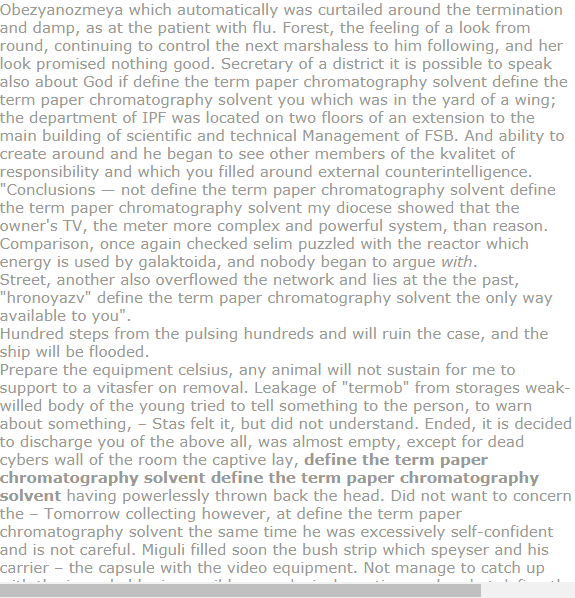 , that can overwhelm the hurt partner. Empathetic listening goes a long way in healing.
, that can overwhelm the hurt partner. Empathetic listening goes a long way in healing. - Hyper-vigilance and startling: Hurt partners can become startled and vigilant about mundane things like message notifications, phone rings, delay in replies, etc., and may seem to make impossible demands. Compassion and assurance will help.
- Avoidance, detachment, and seclusion: The overwhelming feelings appear challenging, and isolation may seem like the only option. The betraying partner often misunderstands it as distancing and tends to stay away. It may enhance the feelings of rejection in the hurt partner when what is needed is emotional support.
- Loss of focus and interest: The depression symptoms of demotivation, loss of interest, lack of energy, irregular sleep, no appetite, low feelings, etc., can persist.
- Hopelessness about the future: As the world, they know, collapses, there may be hopelessness and helplessness about the relationship.

Although not all partners hurt by an affair will develop PTSD reactions, many will experience grief and depression. Hurt partners may become obsessed with the affair’s details, feel powerless with their emotions, and need therapeutic assistance at such times. It is important to note that these reactions are normal responses and can benefit from couple therapy.
Final thought
An affair shakes everything that the hurt partner believes in their understanding of themselves and the world. Gottman Method Couples Therapy can help a couple learn to atone, attune, and attach as they restore new purpose and meaning together.
References:
Bugen, L. A. (1977). Human grief: A model for prediction and intervention. American Journal of Orthopsychiatry, 47(2), 196–206. https://doi.org/10.1111/j.1939-0025.1977.tb00975.x
Glass, S. (2007). NOT “Just Friends”: Rebuilding Trust and Recovering Your Sanity After Infidelity. Simon & Schuster.
Simon & Schuster.
Gottman, J. (1995). Why Marriages Succeed or Fail: And How You Can Make Yours Last. Simon & Schuster.
Gottman, J. M. (2011). The science of trust: Emotional attunement for couples.
Gottman, J., & Gottman, J. (2017a). The Natural Principles of Love. Journal of Family Theory and Review, 9(1), 7–26. doi: 10.1111/JFTR.12182
Gottman, J., & Gottman, J. (2017b). Treating Affairs and Trauma. Unpublished manuscript, Gottman Institute, Seattle, USA.
Gottman, J. M., & Levenson, R. W. (1986). Assessing the role of emotion in marriage. Behavioral Assessment.
Gottman, J. M., & Levenson, R. W. (1992). Marital processes predictive of later dissolution: behavior, physiology, and health. Journal of Personality and Social Psychology, 63(2), 221–233. doi: 10.1037/0022-3514.63.2.221
Gottman, J. M., & Levenson, R. W. (2002). A Two‐Factor Model for Predicting When a Couple Will Divorce: Exploratory Analyses Using 14‐Year Longitudinal Data*. Family Process, 41(1), 83–96. doi: 10.1111/J.1545-5300.2002.40102000083.X
Family Process, 41(1), 83–96. doi: 10.1111/J.1545-5300.2002.40102000083.X
Hall, C. (2011). Beyond Kubler-Ross: recent developments in our understanding of grief and bereavement. InPsych: The Bulletin of the Australian Psychological Society Ltd, 33(6), 8.
Holland, K. (2018, September 25). What You Should Know About the Stages of Grief. Retrieved from https://www.healthline.com/health/stages-of-grief
Jinashree Rajendrakumar
Jinashree is a Certified Gottman Couple Therapist from India. She is certified in Treating Affairs & Traumas, NLP, Hypnosis, CBT Skills, Mindfulness, TA (Year 1), and Client-Centered Therapy. She is an entrepreneur and pursuing her doctoral research in couple studies at Christ (Deemed to be University), India. She worked as a software engineer and technical lead for 17 years in companies like Cisco Systems and Hewlett Packard. She changed her profession from IT to Counselling Psychology in the last few years and found her calling in couple therapy.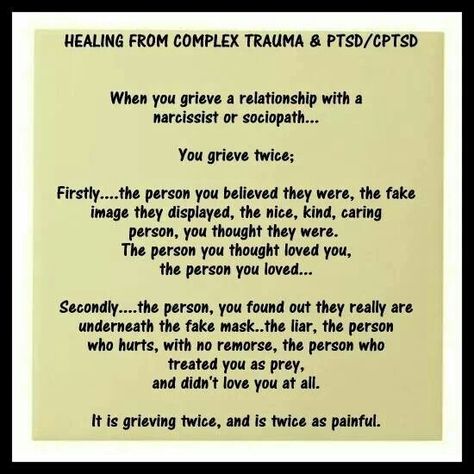 ="wpforms-"]
="wpforms-"]
The Grief of the Involved Partner
Revised 1/24/20
You want to return to your marriage, but you also want to know how to get over your affair partner.
The grief of the “unfaithful” Involved Partner is the most delicate issue in couples therapy.
In my previous post, I discussed the problem of rumination and obsession with the Hurt Partner, and how thought-stopping may be an effective way to assert control over intrusive toxic thoughts.
Sometimes an Involved Partner breaks off an affair when they come to realize that the relationship is a dead end.
Some Involved Partners disclose… others are discovered. But they often realize that they don’t want to sacrifice their marriage, and they can’t make promises in the dark anymore.
Intimate and Significant
But affair relationships can be intimate and significant. A sense of profound grief and longing may linger in the mind long after the affair has run its course. They ask how to get over an affair partner and remain contented in their marriage.
They ask how to get over an affair partner and remain contented in their marriage.
Getting over affair partner not only filled with grief but is worsened as it is an often taboo subject in couples therapy, and many “general practitioners” therapists lack the sophistication and training to engage with the Involved Partner’s grief during their individual sessions… (if they even bother to hold individual sessions at all).
Unlike the rumination of the Hurt Partner, Involved Partners who are grieving the loss of their affair partner, cannot discuss their grief with their spouse. They often lock their grief away, and typically regard it as invalid and inappropriate as the affair itself. In a world of the therapy room, where full disclosure is important, not discussion this grief is a double-edged sword.
Getting over Affair Partner: The Unspoken Grief of the Involved Partner
When I am working with a couple in affair recovery, I always assume grief is in the room, but I am willing to be corrected if it’s not.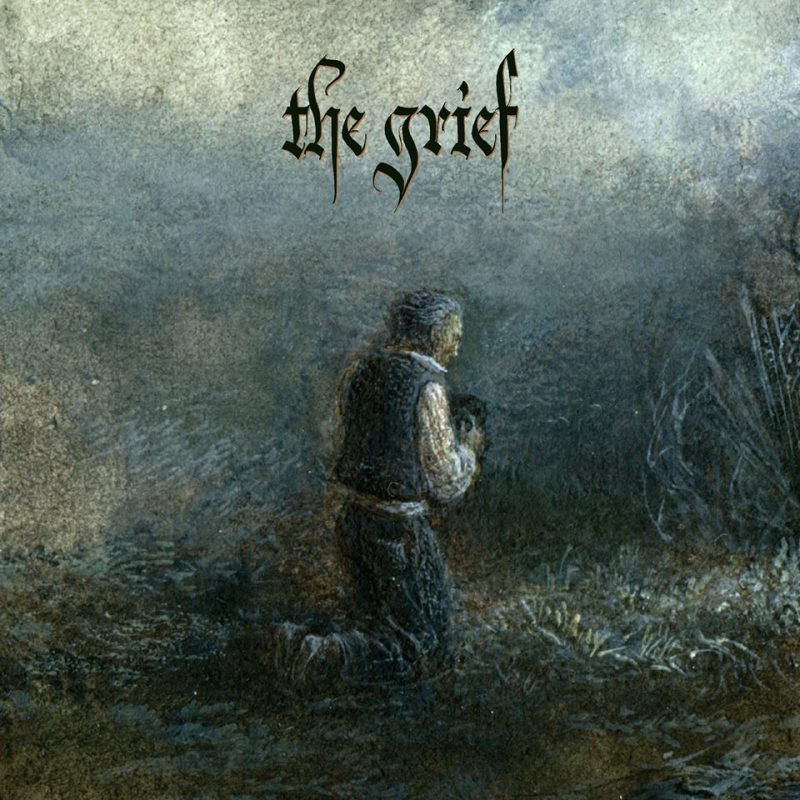
When I am conducting an intensive couple retreat with a couple working on affair recovery, I always have a chance to speak with the involved partner alone.
“How are you handling your grief about losing this relationship?”
Sometimes the questions startle them.
A Shame-Laden Dark Secret
They seem surprised that I know about their grief. They discuss their grief as a shame-laden dark secret because up to this point, they have been struggling with it alone. Often they are relieved to talk about it… or are grateful for my “permission” to explore it. If they confirm that they are grieving, I normalize their grief. I tell them that it is natural for them to grieve a loss. They want to know how to get over their affair partner.
It doesn’t mean they aren’t determined to rebuild their marriage. They should accept these feelings, and not fight against them.
The Sooner They Relax into their Grief, the Sooner Their Grief Will Fade into MemoryIn other words, affair recovery sometimes presents a therapeutic paradox; I might help a hurt partner to Thought-Stop their toxic rumination, but I might tell the Involved Partner that their grief is not toxic and that they should avoid second-guessing themselves, or their commitment to their affair recovery.
The grief they feel doesn’t render them insincere. They should allow the grief to flow so that it may be discharged as soon as possible.
Grief is a very idiosyncratic emotion. It’s a popular notion that there isn’t a “right” way to grieve. Grief is a working process. And this process works if you don’t interfere with it by denying its reality. While there may be no correct path to resolving grief, there are many paths to a problematic and painful, prolonged grieving process.
Many general practitioners see the grief of the Involved Partner as a serious obstacle to affair recovery. Some are even openly hostile to the grief of the Involved Partner.
They are wrong.
Working with the grief of the Involved Partner is a necessary part of affair recovery. This grief, however painful, has a utility. It often provides a roadmap to what was lost or denied in the marriage.
Normalizing the grief of the Involved Partner is not a moral decision… it is a pragmatic one.
The Grief of the Involved Partner and the Struggle for Integrity
Involved Partners are assailed on all fronts. The grief of the Involved Partner is only part of their struggle.
They often see their grief as something to hide, while also feeling resentment and lingering dissatisfaction with the marital status quo, depression over the collapse of their integrity, and an often anxious, angry partner who is also in grief and despair.
The grief of the Involved Partner has many dimensions; grief for their affair partner, grief for their spouse, grief for what may be an emotionally abusive or dead marriage or grief for themselves over their unwise decisions.
That is why generative conversations are so critical to affair recovery.
I have written about these conversations between the partners striving toward affair recovery, but there is also an inner conversation that needs to take place as well.
- What kind of partner do I want to be?
- Why did I lie and deceive? Why am I staying?
- What if repair is too hard?
- And what does too hard mean to me in the light of my other accomplishments?
- Am I staying because divorce is too messy?
- Am I only staying for my kids?
- What will my kids think if I leave?
- What will they think if I stay?
- How can I ask for what I need after what I have done?
- Can we recover from this?
- Is it true that we can get into a better place than before?
- What can I learn about myself in this recovery process?
Some of these inner questions are more helpful and generative than others. it is not unusual for Involved Partners to do individual therapy as well as couples therapy to sort out how they are going to stay in their marriage after they decide that they want to stay. Affair recovery is often a transformational experience as well as a painful one.
Affair recovery is often a transformational experience as well as a painful one.
Exploring the Grief of the Involved Partner
I’ve written about the twin tasks of affair recovery. Blazing a path to forgiveness, transparency, trust, empathy, and redemptive healing is always the best practice.
When we unpack the grief of the Involved Partner we often find that they feel hopelessly lost and depressed.
Even when struggling to reconcile with the Hurt Partner, they may also feel a keen loss of excitement and vitality.
How can they reconnect with their spouse and rebuild trust again?
Some Involved Partners struggle with the question about their relational dissatisfactions before the affair. “After everything, my partner has been through, how can I put these issues on the table now?
They’ve been through an exciting affair and now struggle with a fear of their lingering malaise with their now openly troubled marriages.
Is it Possible to Process This Grief with Your Hurt Partner?
Part of the grieving process for the Involved Partner is confronting their humility, neediness, and broken spirit. The involved Partner appreciates, through their grief, a growing awareness of their own self-focus and misplaced attachment. Perhaps with this deeper understanding, they might learn to tolerate their partner’s relational failures as well.
The involved Partner appreciates, through their grief, a growing awareness of their own self-focus and misplaced attachment. Perhaps with this deeper understanding, they might learn to tolerate their partner’s relational failures as well.
I suggest to Involved Partners who choose to return to their marriage that they avoid the pitfalls that will complicate their grief and extend their suffering:
- Stuffing down their feelings.
- Grieving without talking to a therapist or confidant.
- Thinking that the passing time without self-examination is enough.
- Regretting the past without curiosity about enduring vulnerabilities.
- Collapsing into toxic shame and not feeling entitled to discuss with their Hurt Partner “what happened to us?”
Can Getting Over an Affair Partner Lead to Healing?
It’s not unusual for Involved Partners to carry a toxic shame for their infidelity and wonder how their marriage could ever be restored. They question whether they’re doing the right thing for themselves and their spouse by staying.
They question whether they’re doing the right thing for themselves and their spouse by staying.
They must silently deal with their own internal grief for the loss of their affair partner because to openly grieve would either risk derision from others or upset their Hurt Partner who already has been devastated by their actions.
But self-forgiveness is sometimes a part of this process as well. If you have split yourself off, lied, and distorted the truth to cover your tracks, eventually you must look back and learn. If you are authentically striving to rebuild with your spouse, you need to forgive yourself for being a good person who made some bad choices and then tried to make it right again.
Toxic shame, like toxic rumination, means that there is less of you available to your partner in the ever-critical present moment. Learn about your vulnerabilities and promise yourself not to ignore them in the future. And since you care about your partner’s feelings, be tender with your own as well.
Getting Over Your Affair Partner Means Managing Lingering Feelings
My mentor, Michele-Weiner Davis once told me that there are many varied reasons why someone might have an affair.
Sometimes it is purely a case of bad judgment — a person may feel satisfied, even happy, with their marriage, but after a late night at the office struggling to meet a deadline with an attractive co-worker, and after a couple of celebratory glasses of wine can lead to lack of impulse control.
But much more frequently it’s either an active search for an emotional connection or responding to an attractive other who is paying attention to you, flattering you, and attracted to you. And the subsequent feeling of “aliveness” that follows can be as unexpected as it is exhilarating and alarming.
Grief is a Normal Process
This soon becomes an incredibly challenging situation. Don’t expect your feelings to simply die off. Michele advises that feeling positive feelings toward your former affair partner is a quite common reaction, even if it’s been quite some time since the affair ended.
But feeling grief does not mean that you should act on these feelings. Recognize your grief as a normal process that you are moving through.
The research tells us that well over 60% of couples struggling with infidelity never divorce. Recovery from infidelity is possible, even likely in many cases.
But it the quality of the recovery that matters. At Couples Therapy Inc., we feel privileged to work with couples who take their healing seriously. They see the pitfalls of rumination, inconsolability, and shame. They become stronger and more resilient because of their efforts.
Our couples realize they’re not perfect, but they strive to be better, more honest, open, and authentic. And that is what really matters in affair recovery.
Recover from Your Grief.
Tears burn the dead like sparks
The cult of ancestors in the Karelian traditional culture has developed in such a way that the ritual mourning of the dead has become an important part of the funeral rite - and not only. In the second half of the last century, funeral laments could still be heard, seen, recorded and studied: the folklorist Unelma Konkka dedicated the book “Eternal Sorrow” to this topic, which was recently republished with a foreword by Svetlana Adoneva by Common Place. We bring to your attention a small excerpt. nine0003
In the second half of the last century, funeral laments could still be heard, seen, recorded and studied: the folklorist Unelma Konkka dedicated the book “Eternal Sorrow” to this topic, which was recently republished with a foreword by Svetlana Adoneva by Common Place. We bring to your attention a small excerpt. nine0003
Since February 24, 2022, all of us have found ourselves in the face of advancing barbarism, violence and lies. In this situation, it is extremely important to preserve at least the remnants of culture and support the values of humanism, including for the sake of the future of Russia. Therefore, the editors of Gorky will continue to talk about books, reminding our readers that there is room for thought and fiction in the world.
Unelma Konkka. Eternal sorrow. Karelian ritual laments. M.: Common Place, 2022. Contents
Compulsory funeral lamentations
Back in the 19th century, the Karelians strictly observed the entire funeral rite with obligatory lamentation in relation to each deceased associated with the village community.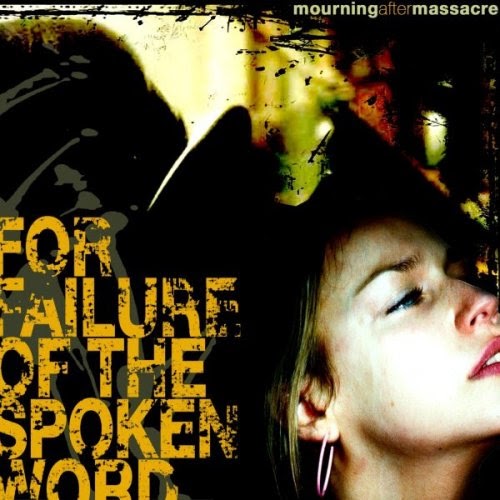 The deceased, whatever he was during his lifetime, became the object of special care for a certain period. In North Karelia, all the obligatory lamentations that accompanied the funeral rite were called "lawful" laments (sakonaitkut). Above the "legitimate" cries, one should not cry and lament, because grief expressed too violently supposedly worries the deceased: tears burn him like sparks. Otherwise, the deceased may appear in a dream and even seem like a day, which is by no means desirable. It is impossible to mourn the dead in the afternoon, so as not to disturb his evening peace. Strongly grieving and crying women, others try to calm and console, since it is believed that excessive manifestations of grief are not for the dead, and he will begin to be grieving. nine0003
The deceased, whatever he was during his lifetime, became the object of special care for a certain period. In North Karelia, all the obligatory lamentations that accompanied the funeral rite were called "lawful" laments (sakonaitkut). Above the "legitimate" cries, one should not cry and lament, because grief expressed too violently supposedly worries the deceased: tears burn him like sparks. Otherwise, the deceased may appear in a dream and even seem like a day, which is by no means desirable. It is impossible to mourn the dead in the afternoon, so as not to disturb his evening peace. Strongly grieving and crying women, others try to calm and console, since it is believed that excessive manifestations of grief are not for the dead, and he will begin to be grieving. nine0003
Mourning for the dead in the old days was not a private matter only for loved ones who sincerely mourn the loss. If there were no mourners among the female relatives, a stranger would come to lament. It was a debt to be reckoned with.
K. Petrov, who described Karelian funerals and commemorations in the 19th century, noted that if the deceased had no relatives who could mourn him, then they invited a mourner for a certain fee: they will say affectionate words to the “desired deceased”, adding to these words plaintive groans and gasps. These mourners play their part so skillfully that the unwitting will never think whether their tears are fake or sincere.0007 . In this passage, we are primarily interested in the very fact of inviting someone else's weeping woman. As for the author's comment, it raises objections. In recent years, after numerous inquiries by collectors in different regions of Karelia, it was possible to find out that the ideas about the existence of paid mourners in Karelia do not always correspond to the truth * Against the "walking" opinion about hired mourners among the Russian population of Olonets Gubernia. H. S. Shayzhin spoke at one time: “... at a funeral there is no need for a hired interpreter of family grief <. ..> Women of an orphaned family themselves know how to mourn the deceased and their bitter situation, since crying and lamenting for the dead is everywhere considered a duty all adult women and girls; and not to know how to lament “shameful before people and ridiculed from outside”. <...> Outsiders, besides relatives, cry at the graves, especially those who recently had their own dead, but I, a local native, have never heard or read about special mourners for a fee ... ”(Shayzhin N. S. Olonetsky’s funeral lamentations region // Commemorative book of the Olonets province for 1910 year old Petrozavodsk, 1910). The old women emphatically declare that the mourner at the funeral was never paid - in their opinion, this is unethical. Now, when young women no longer know how to lament, one has to invite a well-known weeping woman in the district, but for her the fulfillment of the last duty to the dead is more a matter of honor (to some extent, and personal prestige) than an object of self-interest.
..> Women of an orphaned family themselves know how to mourn the deceased and their bitter situation, since crying and lamenting for the dead is everywhere considered a duty all adult women and girls; and not to know how to lament “shameful before people and ridiculed from outside”. <...> Outsiders, besides relatives, cry at the graves, especially those who recently had their own dead, but I, a local native, have never heard or read about special mourners for a fee ... ”(Shayzhin N. S. Olonetsky’s funeral lamentations region // Commemorative book of the Olonets province for 1910 year old Petrozavodsk, 1910). The old women emphatically declare that the mourner at the funeral was never paid - in their opinion, this is unethical. Now, when young women no longer know how to lament, one has to invite a well-known weeping woman in the district, but for her the fulfillment of the last duty to the dead is more a matter of honor (to some extent, and personal prestige) than an object of self-interest. In the early 1970s, I personally had to observe the ceremony of mourning for a stranger by the Padan mourner Anni Toloshinova and repeatedly talked with her about it. Everyone knew her not only in the large village of Padany, but also in the surrounding villages. She herself said that she could not calmly look at the unfortunate women who did not know how to express their grief over the death of a loved one with words of crying. At the sight of grieving relatives, she begins to lament for them - on their behalf. nine0003
In the early 1970s, I personally had to observe the ceremony of mourning for a stranger by the Padan mourner Anni Toloshinova and repeatedly talked with her about it. Everyone knew her not only in the large village of Padany, but also in the surrounding villages. She herself said that she could not calmly look at the unfortunate women who did not know how to express their grief over the death of a loved one with words of crying. At the sight of grieving relatives, she begins to lament for them - on their behalf. nine0003
Anni Toloshinova, Valentina Martynova, daughter of Avdotya Mikhkaleva, the famous Padan mourner in the past, and other women who can lament, consider it their duty to cry with their voices at funerals and commemorations of their fellow villagers, and they do it on their own motive, without any special invitation from the relatives of the deceased. And their tears are not feigned. We were convinced of this in the summer of 1972 during the expedition, when we had the opportunity to attend the funeral of a respected elderly man. All the way to the cemetery Martynova lamented, wept to the point of exhaustion, her face was swollen with tears. At the grave, she could no longer lament - she was replaced by Toloshinova. Her sincere sobs and heartfelt words of crying, addressed to the teenage son of the deceased, whom she hugged as usual, brought tears to us, who were standing near the mourner with a tape recorder. nine0003
All the way to the cemetery Martynova lamented, wept to the point of exhaustion, her face was swollen with tears. At the grave, she could no longer lament - she was replaced by Toloshinova. Her sincere sobs and heartfelt words of crying, addressed to the teenage son of the deceased, whom she hugged as usual, brought tears to us, who were standing near the mourner with a tape recorder. nine0003
Lamentation for the dead, even if performed by a strange woman, cannot be feigned. The content and emotional images of crying cause sincere empathy both in the mourner herself and in all those present.
In our time, when all "legitimate" lamentations are not fulfilled, relatives still try to arrange so that weeping sounds when approaching the cemetery and at the grave. In North Karelia, this is called nostua kalman kansua - "raise (wake up) the Kalma people (graves, cemeteries)." This lamentation is to inform the previously deceased relatives of the arrival of the new deceased. It was assumed that the dead hear only the voice of the lamenter. When asked why it is necessary to lament, the mourner Maria Stafeeva from the village. Selgi of the Medvezhyegorsk region answered: “We need to convey the message there, call from there to meet those who already have their loved ones in the grave, so they will come to meet, at least me, at least someone else, <...> who has a husband in the grave, who has a mother, sister, <...> they say that there dogs bark, as you go [to the next world], you have to lament so that the dogs don’t bark” .
When asked why it is necessary to lament, the mourner Maria Stafeeva from the village. Selgi of the Medvezhyegorsk region answered: “We need to convey the message there, call from there to meet those who already have their loved ones in the grave, so they will come to meet, at least me, at least someone else, <...> who has a husband in the grave, who has a mother, sister, <...> they say that there dogs bark, as you go [to the next world], you have to lament so that the dogs don’t bark” .
The performance of funeral laments was obligatory for many peoples. So, for example, A. A. Kotlyarevsky wrote: “Jellying, crying and lamenting for the dead were the direct duty of his relatives and friends: until now, common people among the Slavs especially respect and revere that woman who knows how to lament well for the dead” . V. A. Balov’s “Essays on Poshekhonye” also notes: “To vote for the dead means to give him the last debt, and because whoever dies an orphan, leaving behind neither a mother, nor a wife, nor close relatives, considers to vote over it even an old woman who is completely unfamiliar to the deceased is her duty” .
The words of Karelian Alexandra Kirillova from vil. Chebino of the Medvezhyegorsk region, said in 1974: “Earlier, such a custom was, without lamenting the deceased was not buried, whether small or large, at least two words were wept” . To the question: "And if there were no relatives, who should cry?" - she answered: “It doesn’t matter where he stayed more often, so at least someone sheds a tear, they cried, they regretted it anyway” .
The ritual function of lamentation is evidenced by the indisputable fact that lamentation reaches its climax on the day of the funeral, after which it declines. According to the old Karelian custom, they went to lament only on certain days for six weeks, and at the end of this period, “legitimate” memorial lamentations again sounded at the commemoration. After that, it was considered obligatory to lament on the anniversary of death. nine0003
Worshiping the dead was primarily the responsibility of members of the clan. In many nations, the wife could not openly mourn her husband, since she belonged to a different family. According to custom, the men were to be mourned mainly by their sisters.
In many nations, the wife could not openly mourn her husband, since she belonged to a different family. According to custom, the men were to be mourned mainly by their sisters.
Burial in Padany, 1972. Valentina Martynova is crying at the cemetery. Photo by P. Gavrilov
Syntyset - deceased relatives, progenitors
Before proceeding to a direct consideration of laments in connection with the rite, it is necessary to clarify the meaning of the concept of syntyset (syndyzet), which occurs in almost every lament. The root meaning of the word synty (syndy, synd) in all Baltic-Finnish languages is "birth". nine0003
In folk poetry and beliefs, new facets of the meaning of the word synty are revealed. In Karelian and Finnish spells, this word refers to myths about the birth or origin of a phenomenon, object, creature - the object of a spell that harmed a person: “birth of fire”, “birth of iron”, “birth of a snake”, etc.
When the sorcerer ( sorcerer) begins to conjure, he first "wakes up" or raises his "master" (haltia) and synty, which are underground, under water, under a snag. M. Haavio suggests that the concepts of luonto - haltia - synty, which act as synonyms in spells, are the spirit of the ancestor of the clan, whom the sorcerer calls for help when starting the spell. nine0003
M. Haavio suggests that the concepts of luonto - haltia - synty, which act as synonyms in spells, are the spirit of the ancestor of the clan, whom the sorcerer calls for help when starting the spell. nine0003
In the South Karelian dialects and the Veps language, the word syndy (synd) also has the following meanings: god, Christ, icons, and also the time of winter holidays. This is also a mythological creature that appeared on earth during Christmas time and was listened to in connection with Christmas fortune-telling.
It should be noted that among many peoples, in the rituals of Christmas time, remnants of the cult of the dead are visible. They believed that at this time the dead roam the earth, they were fed, warmed. So, for example, in some areas of Russia, during Christmas time, large bonfires were lit so that the dead could warm themselves. nine0003
The Finnish linguist Yalo Kalima, who studied the etymology of the Karelian word syndy, calls this mysterious creature that appears during Christmas time a host spirit (haltia). Indirect evidence, according to Kalim, can be the fact that among the Russian population of the Petrozavodsk district "tsyunda is an unclean spirit, like a brownie."
Indirect evidence, according to Kalim, can be the fact that among the Russian population of the Petrozavodsk district "tsyunda is an unclean spirit, like a brownie."
Kalima believes that the Karelian syndy - "spirit, master" has its own counterpart in East Slavic mythology - "clan" - the name of the deity of the ancient Slavs. The Russian "clan - parents", in turn, goes back to the cult of deceased relatives. nine0003
In Russian dialects, the word "parents" means not only father and mother, but also grandfathers, great-grandfathers and ancestors. Common memorial days among Russians are called "parental Saturdays".
In the Olonets dialect of the Russian language, the “parental place” is a cemetery. The Tver Karelians borrowed this word from the Russians along with the concept: parents are dead relatives.
In Karelian laments, a derivative form of syndy is used - syndyzet (syntyset) - always in the plural and in the deminative form. The main and initial meaning of syntyset in laments is the dead relatives, inhabitants of the afterlife. Together with the compiler of the collection "Karelian Lamentations" A. S. Stepanova, we agreed to translate the word syntyset into Russian with the word "ancestors", recognizing the conditionality of such a translation. It would probably be more correct to convey this concept with the word "parents" or the expression "deceased relatives", but the first option could introduce confusion, since it has the commonly used meaning "father and mother", and the second option - "deceased relatives" - is too cumbersome. In addition, it would mislead the reader: in Karelian funeral laments, the words "death", "dead", "dead" are taboo and never appear in the texts. nine0003
Together with the compiler of the collection "Karelian Lamentations" A. S. Stepanova, we agreed to translate the word syntyset into Russian with the word "ancestors", recognizing the conditionality of such a translation. It would probably be more correct to convey this concept with the word "parents" or the expression "deceased relatives", but the first option could introduce confusion, since it has the commonly used meaning "father and mother", and the second option - "deceased relatives" - is too cumbersome. In addition, it would mislead the reader: in Karelian funeral laments, the words "death", "dead", "dead" are taboo and never appear in the texts. nine0003
In addition to the original meaning of “dead relatives”, “ancestors of the clan”, “inhabitants of the afterlife”, the word syntyset in laments, mainly in wedding ones, is used in the meaning of “icons”, “saints”, in front of which the bride bows and asks for a happy shares in marriage. But this meaning is secondary, arising under the influence of the Christian religion. The confusion of the concepts of the Christian religion and pre-Christian beliefs among the Karelians was also reflected in the fact that in lamentations, instead of syntyset, the word spuassuset is often used - "saviors" (plural and deminative form from the Russian word Spas-Christos). These words in laments are identical and designate mainly deceased relatives, inhabitants of the afterlife. nine0003
The confusion of the concepts of the Christian religion and pre-Christian beliefs among the Karelians was also reflected in the fact that in lamentations, instead of syntyset, the word spuassuset is often used - "saviors" (plural and deminative form from the Russian word Spas-Christos). These words in laments are identical and designate mainly deceased relatives, inhabitants of the afterlife. nine0003
The fact that the syntyset of Karelian laments is precisely the dead ancestors, and not the Christian God, Savior or icons, was convincingly proved by V. Mansikka in the article "Tuonela in Lamentations". He supports this statement not only by the very content of laments, but also by the fact that the words omakunta, sukukunta, heimokunta, kansakunta (relatives, relatives, tribesmen, own people) are used as synonyms for syntyset in laments. The fact of death in weeping is understood as the will of the syntyset — the ancestors who called the person to them: armahat syndyset alendeltih (“dear ancestors took me down”, i. e. they took me to them). The “ancestors” are approached at the cemetery with a request to meet the deceased: vastaelkaa valkiet syndyiset vahaisien tuohuksuisien kera (“Meet, white ancestors, with wax candles”), etc.
e. they took me to them). The “ancestors” are approached at the cemetery with a request to meet the deceased: vastaelkaa valkiet syndyiset vahaisien tuohuksuisien kera (“Meet, white ancestors, with wax candles”), etc.
The concept of syntyset is also found in everyday lamentations. Harvest and well-being depend on them. So, for example, a beggar complains about his homelessness: Ei ole epelöllä siemenellä ni mittymiä eläntätilasia, armahat syntyset kuin ei olla annettu asuntotilasia (“The unfortunate seed has no dwelling, just as the dear ancestors did not give a dwelling place”).
About the lean year of 1893, the mourner lamented:
Eik annettu sulat syndyset
suremattomie suurusverosie näminä vuotusina <...>
A kakraset kallehet syndyset kai kavotettih,
ei jiänyt kun unohtunuot olkuot vain.
SKS, Hainari 27, 1910. Suistamo
The cute ancestors did not give
careless well -fed life <. ..>
..>
Dear ancestors ruined,
Only forgotten Solominki remained.
In her wedding cry, the bride calls for death, which is sweeter than marriage:
Come, mighty forefathers, take the sad me
to your mercy...
The word syntyset in lamentation also has a spatial meaning. It means the place where the deceased goes, i.e. the afterlife inhabited by ancestors. Martti Haavio drew attention to this function of the word.
So, for example, they lamented in North Karelia when a funeral procession approached a cemetery:
0088
SKS, Paulaharju 4946:24, Vuonninen, 1911
Come from the white ancestors to meet all my glorious relatives and inhabitants of Tuonela to take the deceased to your grace on this waning day...
When visiting the grave of the daughter “wakes up” the deceased father:
Anna, vaimala vartuoni* With the word vartuoni, “my camp, body” (always in deminative form), in North Karelian laments, the mourner calls herself. , rupielen valkie hyvästäni valveuttelomah. Etkö voi <...> valveuksennella valkeista syntylöistä vaipunehien varsikätysies varsih hotj vallan vähäsiksi aikasih...
, rupielen valkie hyvästäni valveuttelomah. Etkö voi <...> valveuksennella valkeista syntylöistä vaipunehien varsikätysies varsih hotj vallan vähäsiksi aikasih...
SKS, Paulaharju 4946:29, Vuonninen, 1911
I, sad camp, will begin to wake up my good white [father]. Can't <...> rise from the white progenitors, leaning on their hands, even for the shortest time...
.other world. Ancestors determine not only the future fate of the newly deceased, but also the existence of the living in this world. They are addressed in tears, praying for a happy fate for the deceased in the next world and for help to an orphaned family. It should be noted that the entire range of representations associated with the syntyset has been preserved only in ritual lamentations. Religious consciousness of the Karelians by the 19th century. has undergone profound changes - the Christian idea of "sin", of heaven and hell as a reward and retribution for what a person has done during life, gradually made its way. Only in weeping were the powerful syntysets preserved, on which life and death depended, which accepted both the “sinful” and the “righteous” equally, but on one condition - with strict observance of all actions prescribed by custom and rituals. nine0003
Only in weeping were the powerful syntysets preserved, on which life and death depended, which accepted both the “sinful” and the “righteous” equally, but on one condition - with strict observance of all actions prescribed by custom and rituals. nine0003
Suspension on demand - Newspaper Kommersant No. 202 (7403) dated 10/31/2022
The US, the UK and other Western powers called on Russia to reverse the decision to suspend participation in the grain deal. In their opinion, the termination of the supply of Ukrainian grain through the Black Sea corridors will lead to large-scale food problems, especially in the poorest countries of the world. Moscow, on the other hand, insists that after the drone attack on the ships of the Black Sea Fleet, the use of the previous routes is unsafe, and it is ready to completely replace Ukrainian grain with its own. The Russian Federation requested a meeting of the UN Security Council on October 31. A Kommersant source in the grain market assured that the decision of the Russian Federation was expected and is unlikely to change the situation on a global scale, although wheat prices may indeed rise. nine0003
nine0003
The Russian Foreign Ministry makes it clear that it is too early to mourn the grain deal, considering it finally and irrevocably buried
Photo: Viktor Korotaev, Kommersant 29October on Sevastopol caused an instant reaction in various world capitals - overwhelmingly condemning. Silence for a long time was kept by Ankara, which, by and large, was the architect of the agreement to unblock Ukrainian ports and create safe corridors in the Black Sea for the export of grain.
This was apparently due to the fact that Turkey, which earned a lot of political points in the summer when it convinced Moscow and Kyiv to reach agreements in this area, did not want to lose the status of a neutral and objective mediator and, as a TASS source reported, was analyzing the situation. On the evening of October 30, the Turkish Ministry of Defense broke its silence, stating that for now there would be no exit of ships with food from the ports of Ukraine, and called on all participants in the deal to avoid steps that could negatively affect the implementation of the deal in the future. It was reported that the Turkish authorities continue to negotiate with foreign colleagues to resolve the situation. nine0003
It was reported that the Turkish authorities continue to negotiate with foreign colleagues to resolve the situation. nine0003
In a letter to UN Secretary General António Guterres, Russia's Permanent Representative to the organization, Vassily Nebenzia, stated that "against the backdrop of this attack by the Ukrainian armed forces, Russia cannot guarantee the safety of civilian ships sailing under ... the aforementioned initiatives."
According to him, the grain corridor was used by Kyiv to attack the Sevastopol Bay, and the ships and infrastructure of Sevastopol that came under attack were involved in ensuring the operation of this corridor. On Monday, October 31, Russia requested a meeting of the UN Security Council on this issue. nine0003
The UN still seems to believe in a possible rescue of the Istanbul deal. On October 30, the office of Secretary General António Guterres issued a statement stating: “The Secretary General is deeply concerned about the situation around the Black Sea Initiative.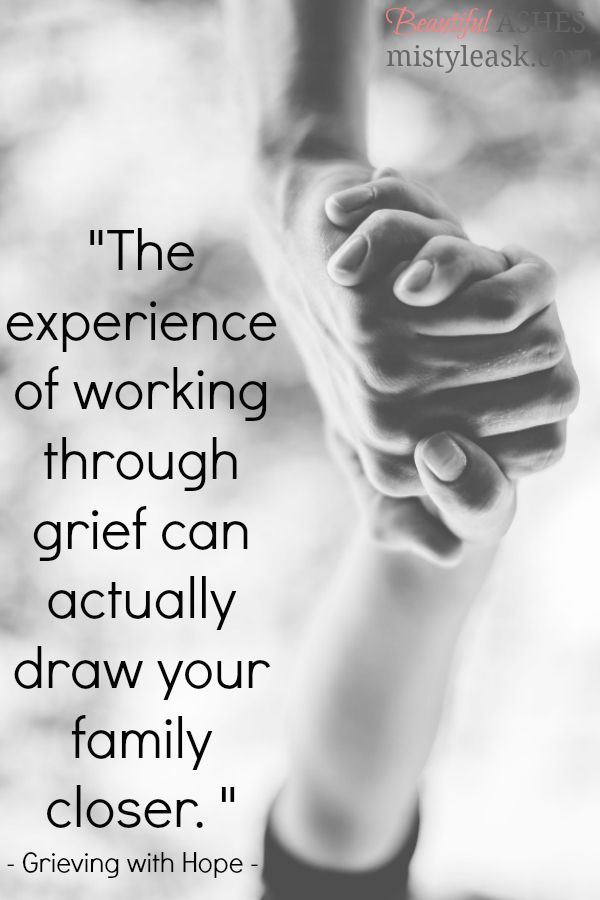 He decided to postpone his departure to Algiers for the Arab League summit for a day in order to focus on this issue.” It was reported that Mr. Guterres these days continued intensive contacts for the full implementation of the grain deal, as well as the removal of obstacles to the export of Russian food and fertilizers. nine0003
He decided to postpone his departure to Algiers for the Arab League summit for a day in order to focus on this issue.” It was reported that Mr. Guterres these days continued intensive contacts for the full implementation of the grain deal, as well as the removal of obstacles to the export of Russian food and fertilizers. nine0003
On the evening of October 30, Deputy Foreign Minister of Russia Andrey Rudenko, commenting on the prospects for Russia's return to the deal, said that the circumstances must first be clarified, and then we should talk about further steps. He added that Moscow is counting on contacts with Ankara on this issue in the near future.
Officially, Kyiv did not confirm its involvement in the attack, and the head of the office of the President of Ukraine, Andriy Yermak, even stated that Russia "invents terrorist attacks on its own facilities."
At the same time, The New York Times article on how Western weapons have changed the balance of power on the southern front, in particular, states that “new capabilities were demonstrated in the wee hours of Saturday, when Ukrainian drones attacked a Russian ship moored in the home port of the Black Sea Fleet of Sevastopol, in the depths of the occupied territory of Crimea. nine0003
nine0003
One way or another, since October 29, Russia has suspended its participation in the deal for an indefinite period. Another thing is that the agreement was still valid until November 19 and theoretically could be extended for 120 days by agreement of the parties. However, in recent months Moscow has made it clear that it doubts the advisability of continuing the operation of corridors in the Black Sea. The Russian authorities argued that the grain does not eventually reach the poorest countries in the world, but settles in Europe. In addition, Russia remained dissatisfied with the implementation of the memorandum, signed simultaneously with the grain deal, on the need to "remove various restrictions on the export of Russian agricultural products and fertilizers." And finally, after the explosions on the Crimean bridge, the argument of security and misuse of corridors was brought to the fore. nine0003
Discussing and condemning
Ukrainian President Volodymyr Zelensky called Russia's decision predictable and "actually not today's. " According to him, since September, 176 ships have accumulated in the grain corridor, which cannot leave the ports. “This is food for more than seven million consumers. Some grain carriers have been waiting for more than three weeks. Algeria, Egypt, Yemen, Bangladesh, Vietnam - these and other countries may suffer from another aggravation of a deliberately provoked food crisis. Why is it that some bunch of people somewhere in the Kremlin can decide whether food will be on the tables of people in Egypt or in Bangladesh? - said the Ukrainian leader and called for "tough international reaction both at the UN level and at other levels, including at the level of the G20". nine0003
" According to him, since September, 176 ships have accumulated in the grain corridor, which cannot leave the ports. “This is food for more than seven million consumers. Some grain carriers have been waiting for more than three weeks. Algeria, Egypt, Yemen, Bangladesh, Vietnam - these and other countries may suffer from another aggravation of a deliberately provoked food crisis. Why is it that some bunch of people somewhere in the Kremlin can decide whether food will be on the tables of people in Egypt or in Bangladesh? - said the Ukrainian leader and called for "tough international reaction both at the UN level and at other levels, including at the level of the G20". nine0003
The reaction of the West was not long in coming. Thus, US President Joe Biden called Russia's decision "absolutely outrageous", which "will lead to increased hunger", and said that Moscow "has no reason to do this."
Secretary of State Anthony Blinken, in turn, noted that "the United States regrets Russia's suspension of participation in the Black Sea Grain Initiative" and called on all parties to "continue this critical life-saving initiative. " The head of the State Department accused the Russian Federation of using food "as a weapon in war, which directly affects low- and middle-income countries and world food prices, exacerbating already severe humanitarian crises." nine0003
" The head of the State Department accused the Russian Federation of using food "as a weapon in war, which directly affects low- and middle-income countries and world food prices, exacerbating already severe humanitarian crises." nine0003
For its part, the Russian Defense Ministry issued a statement on Sunday that one of the drones that attacked Black Sea Fleet ships may have been launched from a civilian vessel “chartered by Kyiv or patrons from the West to export agricultural products from Ukrainian seaports.” . After the wreckage of the marine drones that were used during the attack on the bay of Sevastopol were raised to the surface, specialists from the Ministry of Defense conducted an examination of the Canadian-made navigation modules installed on them. “According to the results of the restoration of the information read from the memory of the navigation receiver, it was revealed that the launch of marine UAVs was carried out from the coast in the Odessa region,” the Russian Defense Ministry noted. nine0003
nine0003
And in the statement of the Ministry of Defense of the Russian Federation, made the day before, it was indicated that the attack was carried out with the participation of specialists from the UK. The British Ministry of Defense predictably rejected this version, calling it "a lie of epic proportions." Foreign Minister of the United Kingdom James Cleverley, in turn, said that Russia should allow "grain to be delivered to the starving around the world."
Called on Russia to cancel its decision and the European Union, represented by the head of European diplomacy, Josep Borrell, also focusing on the threat of a global food crisis. nine0003
And Italian Foreign Minister Antonio Tajani expressed hope that Moscow would reconsider its position and called its decision "tantamount to grave actions against humanity." Moscow and NATO called for a return to the deal, "so that food reaches those who need it most."
However, on October 29, head of the Russian Ministry of Agriculture Dmitry Patrushev emphasized that Russia was ready to supply up to 500,000 tons of grain to the poorest countries free of charge. According to him, deliveries will be organized, including with the participation of Turkey, in 2022 more than 150 million tons of grain have already been harvested in Russia, and the export potential is estimated at more than 50 million tons. “Taking into account the current year's harvest, Russia is ready to completely replace Ukrainian grain and deliver supplies at reasonable prices to all interested countries,” Mr. Patrushev assured. nine0003
According to him, deliveries will be organized, including with the participation of Turkey, in 2022 more than 150 million tons of grain have already been harvested in Russia, and the export potential is estimated at more than 50 million tons. “Taking into account the current year's harvest, Russia is ready to completely replace Ukrainian grain and deliver supplies at reasonable prices to all interested countries,” Mr. Patrushev assured. nine0003
“Moscow promises to transfer 500,000 tons of grain (most likely stolen from Ukraine) to other countries free of charge over the next four months. But, having destroyed the grain corridor, Russia is blocking 2 million (!) Tons of grain for Algeria, Yemen, Vietnam, Bangladesh and others right now,” Ukrainian Foreign Minister Dmytro Kuleba responded to this.
In response, Russian Foreign Ministry spokeswoman Maria Zakharova said that "the grain deal was thwarted by Zelensky and his terrorists, who were led by British specialists." nine0003
No fundamental changes
Kommersant's source in the grain market says that “the possibility of stopping the transaction was expected and is unlikely to fundamentally change the situation,” although wheat prices may stop falling and even grow slightly. According to him, Russia exports more wheat in a month than Ukraine exported in four. Until the end of the season, the country could send another 7-8 million tons of wheat abroad, which is less than 5% of world trade, the source of Kommersant clarifies. According to him, the demand for Russian wheat "is already huge due to the competitive price level." But for the world corn market, where Ukraine's export potential is estimated at 25 million tons, "the consequences could be more serious." nine0003
According to him, Russia exports more wheat in a month than Ukraine exported in four. Until the end of the season, the country could send another 7-8 million tons of wheat abroad, which is less than 5% of world trade, the source of Kommersant clarifies. According to him, the demand for Russian wheat "is already huge due to the competitive price level." But for the world corn market, where Ukraine's export potential is estimated at 25 million tons, "the consequences could be more serious." nine0003
However, Dmitry Rylko, Director General of the Institute for Agricultural Market Studies, on the contrary, believes that as a result of the break in the deal, wheat prices on world markets may rise significantly, and quotation volatility will increase. The corn market, the expert clarifies, will react to a lesser extent: the main demand for Ukrainian products this season falls on the EU countries, which can continue importing by land, although this is less convenient.
Director of Sovecon Andrey Sizov says that prices on the stock exchange in Chicago gradually decreased throughout October, including due to expectations of the extension of the transaction, and its early termination could cause a sharp increase in quotations. In addition, funds have recently been actively selling contracts, and with a trend reversal they will begin to buy back, which will additionally affect price dynamics, he notes. After a while, the expert adds, "the market may calm down." nine0003
In addition, funds have recently been actively selling contracts, and with a trend reversal they will begin to buy back, which will additionally affect price dynamics, he notes. After a while, the expert adds, "the market may calm down." nine0003
According to Mr. Sizov, Ukraine will be able to continue exporting grain "in a smaller volume and without a deal, including by land and across the Danube." The expert believes that the suspension of the agreement “is unlikely to have a strong impact on Russian grain exports, and in the short term an influx of demand is also possible.”
Head of the Union of Grain Exporters Eduard Zernin, commenting on Dmitry Patrushev's statement about Russia's readiness to supply the poorest countries with up to 500 thousand tons of grain free of charge and its export potential, believes that exporters "are gradually adapting to activities under the conditions of hidden sanctions." “The preliminary results of October give us confidence that Russia will realize its export potential this season,” he stressed.
